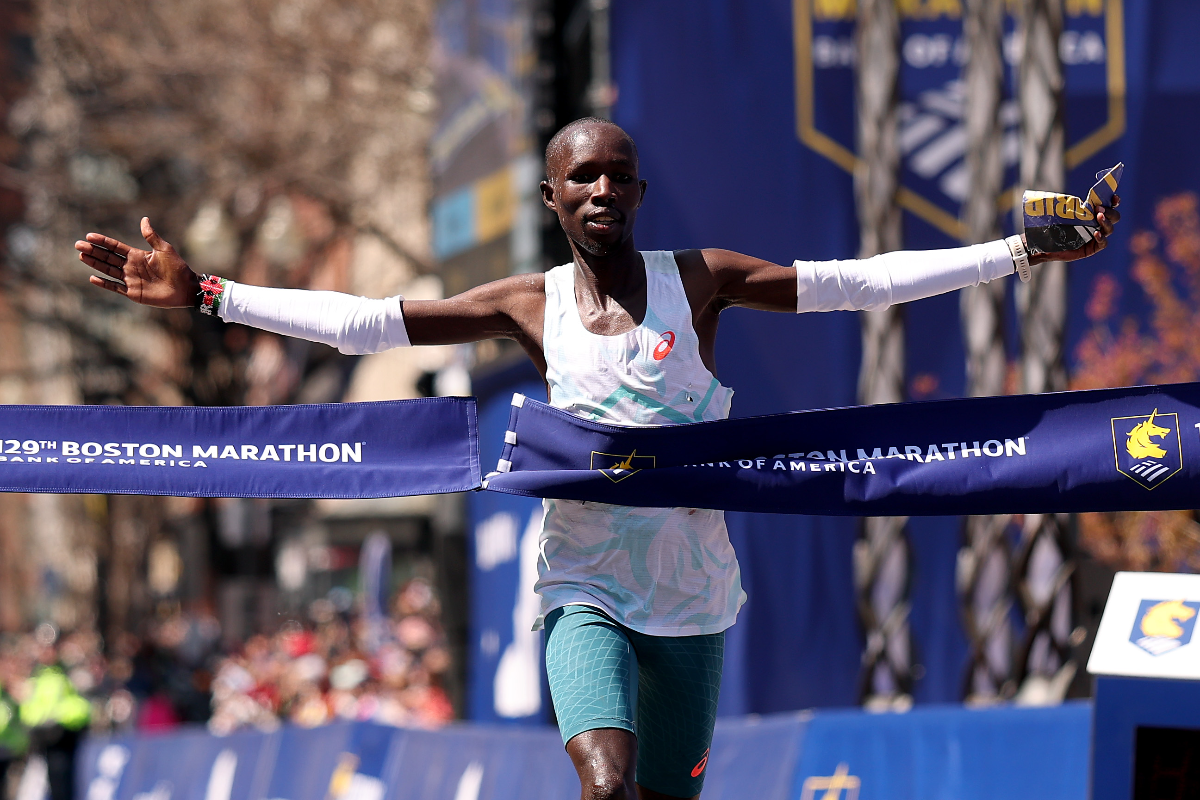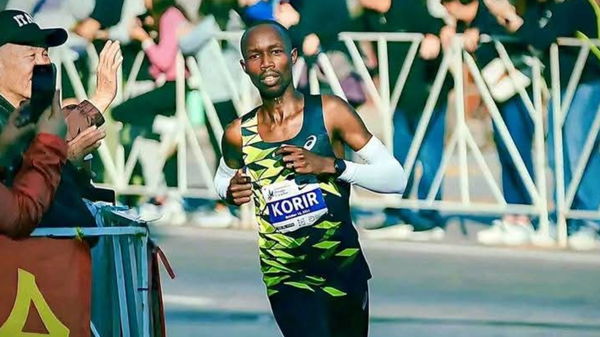

Heartbreak Hill has long been the stuff of legends. Nestled between miles 20 and 21 of the Boston Marathon, it’s the final—and cruelest—climb in Newton, a half-mile uphill stretch that has crushed the dreams of countless runners. It’s where many athletes hit the wall. But on April 21, 2025, the real heartbreak for Kenyan runner John Korir didn’t happen on the hill. It started all the way back at mile zero—in Hopkinton, at the very starting line.
Watch What’s Trending Now!
In a shocking moment, Korir tripped and fell just as the race began, hitting the pavement while the rest of the elite field surged ahead. For most, that kind of stumble at the start of a marathon is more of a mental blow than a physical one. But for Korir, it became a defining moment of resilience. How so? Instead of crumbling, he made a choice. He picked himself up, adjusted his bib, and started running—not just to catch up, but to win.
By the time Korir reached Kenmore Square, not only had he erased the gap, but he had taken the lead. And two hours, four minutes, and forty-five seconds after that initial fall, he crossed the finish line—the second-fastest time in the 129-year history of the Boston Marathon. So, after the race, Chris Chavez caught up with the newly crowned champion and asked the question on everyone’s mind: How?
ADVERTISEMENT
Korir’s answer was raw and powerful: “What was going through my mind was, should I give up, or should I wake up and go? So… And then something told me. Wake up and go, maybe to win. So I woke up and go. And first, I removed my bib and put it on my shirt. So, and then I considered racing, and then I began doing.” It was that simple. That human and that defiant. Now, talking about defiance, Korir promptly showed his left hand on the video. You may ask how things are connected.
🗣️ “I got a scar on my hands but that will be my remembering for Boston.”
John Korir takes us inside his internal thoughts after falling at the start of the 2025 Boston Marathon before going on to win the race in the second-fastest time in race history — 2:04:45.
He hit the… pic.twitter.com/JJXysIuoyl
— Chris Chavez (@ChrisChavez) April 23, 2025
Well, the Kenyan athlete has a scar on his left hand because of the fall on the pavement. However, he has taken it as a badge of honor. Explaining that, he said in the conversation, “I got a scar on my hands, but that will be my remembering for Boston.” That is the sign of saving the legacy, one that his brother, Wesley, started back in 2012 by winning the Boston Marathon. However, the 49-year-old has something spectacular.
ADVERTISEMENT
John Korir wins the race, overpowering the giants
On April 21, John Korir didn’t just line up to race the Boston Marathon. He lined up to challenge a dynasty. Standing in his way were two giants: Sisay Lemma, the defending Boston champion from 2024, and Evans Chebet, already etched in Boston lore with back-to-back titles in 2022 and 2023. On paper, Korir was the outsider. But marathons aren’t run on paper—they’re run on grit, pain, and heart.
ADVERTISEMENT
By mile 17, the tide began to turn. Lemma, clearly struggling, stepped off the course to stretch out a tight leg. A champion reduced to survival. Chebet, ever the warrior, held on longer but faded late, clocking 2:07:22—a strong time, but not enough.
Top Stories
Scottie Scheffler Faces Scrutiny After Taking Out Anger on Golf Club at WM Phoenix Open: ‘Washed’

Jordan Spieth Throws Bizarre Temper Tantrum as Opening Round at WM Phoenix Open Becomes a Challenge

Rob Gronkowski Demands Severe Punishment for Andy Reid After Bill Belichick Snub

PGA Tour Split Into Two as Scottie Scheffler Confirms Stance on Patrick Reed’s Return

Multiple PGA Tour Pros Stopped from Playing as WM Phoenix Open Round Is Canceled Over Recurring Problem

Drake Maye Reveals Shoulder Injury Update as Patriots QB Announces News On Super Bowl Availability


ADVERTISEMENT
Then there was Korir, surging past Heartbreak Hill with fire in his eyes, throwing down a brutal 4:40 mile on the course’s cruelest climb. By the time he stormed down Boylston Street, the race wasn’t close. He crossed in 2:04:45, the second-fastest time in the marathon’s 129-year history. So, remember, Korir’s performance wasn’t some fluke burst of brilliance. It was years in the making—and it all clicked last fall in Chicago, when he stunned the world with a 2:02 win. Ultimately, in the avenues of Beantown, it wasn’t just victory—it was transformation.
ADVERTISEMENT
ADVERTISEMENT
ADVERTISEMENT